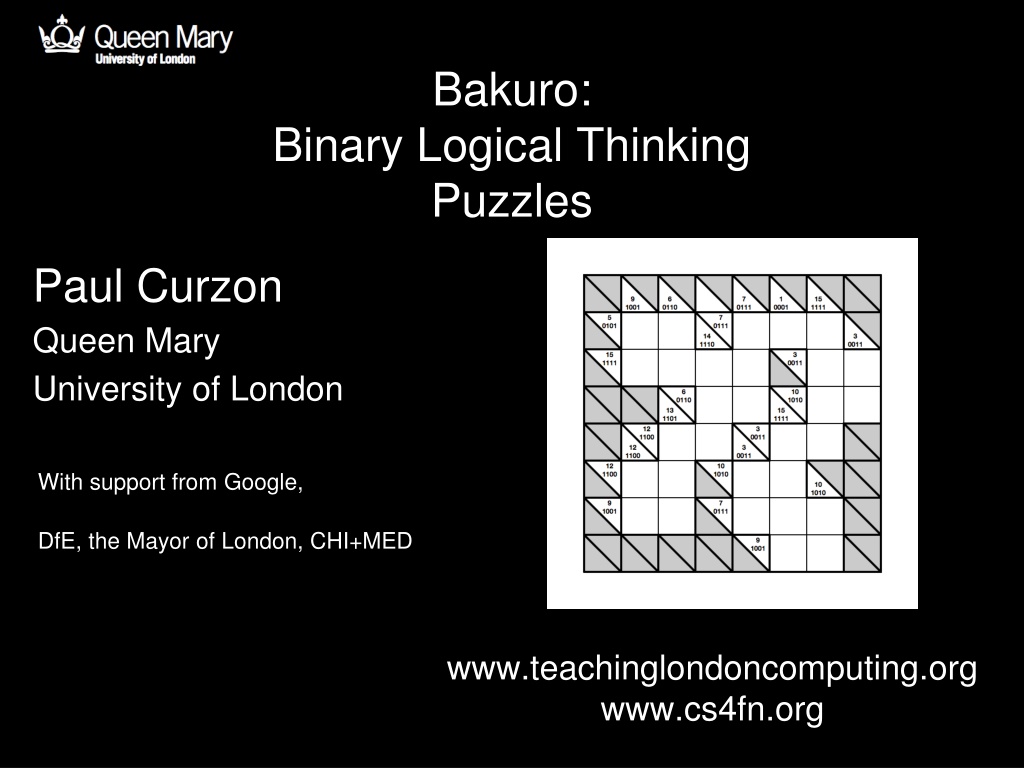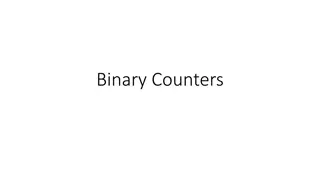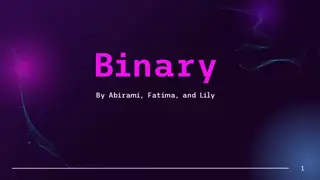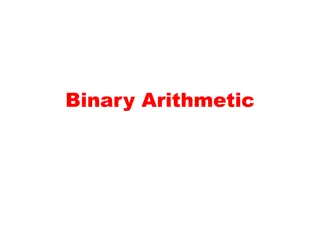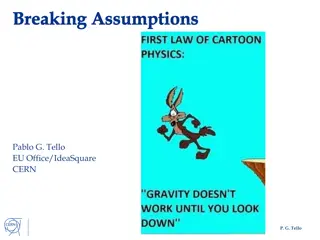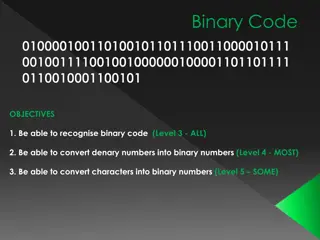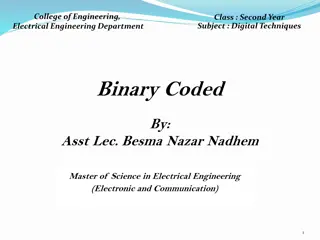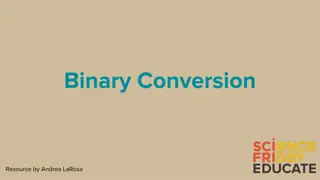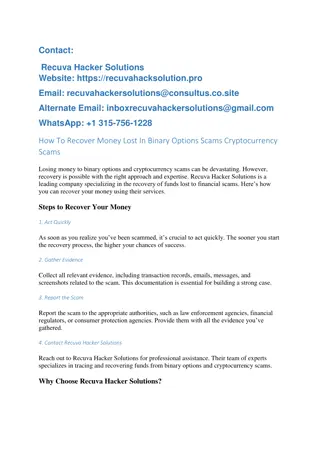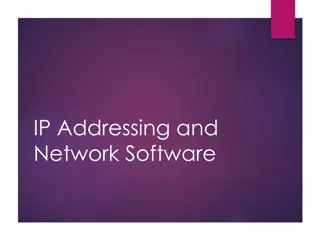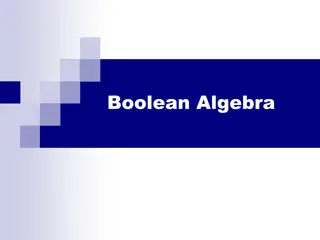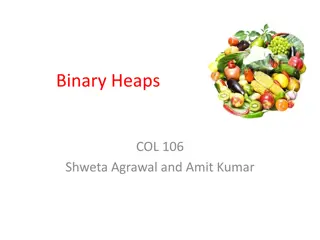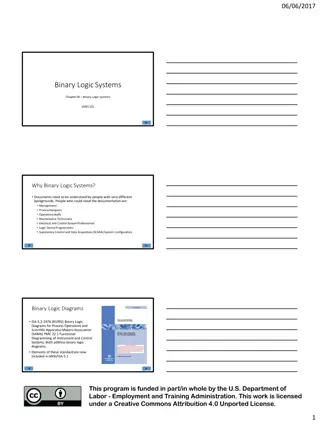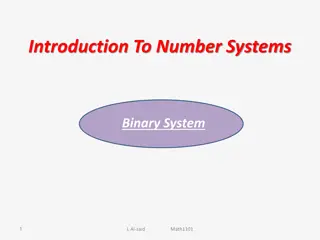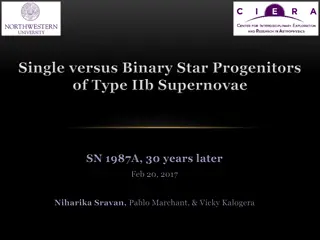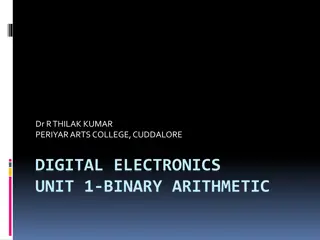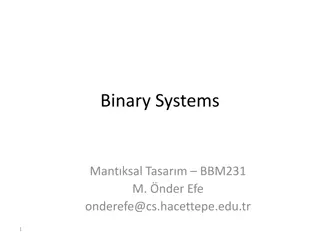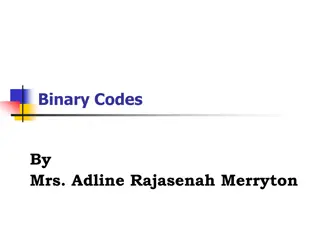Explore Binary Logical Thinking Puzzles with Bakuro
Dive into the world of binary and logical thinking puzzles with Bakuro, designed by Paul Curzon from Queen Mary University of London. These puzzles challenge you to fill grids using powers of 2 and solve unique sum intersections. Engage in the fun practice of binary coding while honing your computational thinking skills. Don't miss out on the extension activity where students can create their own puzzles for an added challenge!
Download Presentation

Please find below an Image/Link to download the presentation.
The content on the website is provided AS IS for your information and personal use only. It may not be sold, licensed, or shared on other websites without obtaining consent from the author. Download presentation by click this link. If you encounter any issues during the download, it is possible that the publisher has removed the file from their server.
E N D
Presentation Transcript
Bakuro: Binary Logical Thinking Puzzles Paul Curzon Queen Mary University of London With support from Google, DfE, the Mayor of London, CHI+MED www.teachinglondoncomputing.org www.cs4fn.org
A simple example puzzle Fill the grid using only powers of 2 (1,2,4,8) Horizontal (vertical) blocks must add to the number on the left (above) Fill in the binary of the answers too
A simple example puzzle Each number has a unique sum Work values out from the intersection of sums 3 = 1 + 2 9 = 1 + 8 1 0001
A simple example puzzle 3 = 2 + 1 6 = 2 + 4 The binary tells you the numbers! 1 2 0001 0010 0011 = 0010 + 0001 3 = 2 + 1
A simple example puzzle 12 = 8 + 4 6 = 2 + 4 1 2 9 = 8 + 1 0001 8 1000 0010 4 0100 Now you have the basics, do a harder version
Extension Activity Get the students to invent their own based on blank grids They must check it is solvable! Then create ones from a blank sheet of squared paper
Summary Learn fundamentals of binary and logical thinking Lots of practice at binary more fun than lists of binary-decimal conversions to do also focusses on underlying construction Puzzles are a good way to explore and learn many computing and computational thinking ideas
More support On our website contains: Activity sheets Booklets Slides Lots more stories For teachers: www.teachinglondoncomputing.org For students: www.cs4fn.org Twitter: @TeachingLDNComp @cs4fn
